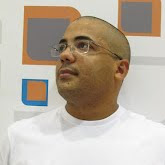ADVANCES IN METAPHOR STUDIES CONFERENCE
Metaphor: Retrospect and Prospects
The so-called "Cognitive
Revolution" brought with it, among other features, Cognitive or Conceptual
Metaphor (CM) (Reddy, Lakoff and Johnson), refining and expanding theories of
comparison and property attribution. In the period 1970-1990 circa, CM
gradually came to dominate the metaphor scene, consolidating its position in
the twenty years that followed, also bolstered by relevance theory and Gricean
pragmatics. Naturally, there were "offshoots" and complementary
strands - developments such as blending theory − which enriched the scene.
Unsurprisingly, inadequacies were also identified and "alternatives"
or "integrations", such as perceptual simulation (Gibbs, Barsalou),
framing (Schoen, Reddy) offered. Indeed, framing may be combined with
conceptual blending (Fauconnier and Turner), the importance of pragmatics and context
(Douthwaite, Kovecses), and of narratological theory (Biebuyck and Martens).
There have also been more radical criticisms of this broad line of
investigation, tending to come within more traditional domains of literary
criticism and rhetoric theory (part one of Fludernik). In this domain
non-cognitive approaches have not failed to make their mark (e.g. a
revitalisation of analogy, Coenen).
Just as the theoretical domains
are extremely wide-ranging, so are the domains of application, with every area
of language having been treated − literary, conversation, politics, classroom,
art, medicine, law, economics to name but a few.
Papers are therefore invited from
all disciplines, including literature, linguistics, psychology, sociology,
criminology, anthropology, communication studies, medicine and the hard
sciences, on any aspect of metaphor theory and its applications. Papers are
also welcome which trace the development of metaphor theory and how
developments in metaphor theory are related to more general developments in the
field of science.
Bibliography
Barsalou, L.
W. (2008) 'Grounded cognition', Annual Review of Psychology, 59: 617-645.
Biebuyck, B.
and Martens, G. (2011) 'Devouring the children of the revolution? Literary
metaphor between cognition and narration', in Fludernik, M. (ed.) Beyond
Cognitive Metaphor Theory: Perspectives on Literary Metaphor, pp. 58-76. New
York: Routledge.
Coenen, H. G.
(2011) 'Systematizing verbal imagery: on a sonnet by Du Bellay', in Fludernik,
M. (ed.) Beyond Cognitive Metaphor Theory: Perspectives on Literary Metaphor,
pp. 19-35. New York: Routledge.
Douthwaite,
J. (2011) 'Conceptual metaphor and communication: an Austinian and Gricean
analysis of Brian Clark's Whose Life Is It Anyway?', in Fludernik, M. (ed.)
Beyond Cognitive Metaphor Theory: Perspectives on Literary Metaphor, pp.
137-157. New York: Routledge.
Fauconnier,
G. and Turner, M. (2002) The Way We Think: Conceptual Blending and the Mind's
Hidden Complexities. New York: Basic Books.
Fludernik, M.
(ed.) (2011) Beyond Cognitive Metaphor Theory: Perspectives on Literary
Metaphor. New York: Routledge.
Gibbs, R. W.
(2006) 'Metaphor interpretation as embodied simulation', Mind and Language, 21
(3): 434-458.
Kovecses, Z.
(2015) Where Metaphors Come From. Oxford: Oxford University Press.
Lakoff, G.
and Johnson, M. (1980) Metaphors We Live By. Chicago: University of Chicago
Press.
Ortony, A.
(ed.) (1979) Metaphor and Thought. Cambridge: Cambridge University Press.
Reddy, M. J.
(1979) 'The conduit metaphor - a case of frame conflict in our language about
language', in Ortony, A. (ed.) Metaphor and Thought, pp. 284-324. Cambridge:
Cambridge University Press.
Schoen, D. A.
(1979) 'Generative metaphor: a perspective on problem-setting in social policy',
in Ortony, A. (ed.) Metaphor and Thought, pp. 137-163. Cambridge: Cambridge
University Press.
The main language for the
conference is English, as will be the ensuing publication, but scholars
employing French, German and Spanish will also be accepted provided a minimum
number of papers is received.
When submitting an abstract for
either French, German or Spanish, authors should indicate whether they are
willing to present their paper in English if insufficient proposals are
submitted in their own language.
SUBMITTING ABSTRACTS
Please send abstracts of up to 400
words as Word attachments by February
10th, 2016. Please include your full name, gender, academic title,
affiliation, postal address, email address, mobile number, the title of your
presentation and five keywords. Notifications of acceptance will be sent within
two weeks of receipt of a proposal.
Abstracts should be sent to the
following organisers:
ENGLISH
John Douthwaite
(j.douthw@virgilio.it), Ilaria Rizzato (ilaria.rizzato.unige@gmail.com),
Elisabetta Zurru (elizurru@gmail.com)
FRENCH
Micaela Rossi
(micaela.rossi@unige.it), John Douthwaite (j.douthw@virgilio.it), Ilaria
Rizzato (ilaria.rizzato.unige@gmail.com)
GERMAN
Serena Spazzarini
(Serena.Spazzarini@unige.it), John Douthwaite (j.douthw@virgilio.it), Ilaria
Rizzato (ilaria.rizzato.unige@gmail.com)
SPANISH
Ana Lourdes de Heriz
(ana.deheriz@unige.it), John Douthwaite (j.douthw@virgilio.it), Ilaria Rizzato
(ilaria.rizzato.unige@gmail.com)
Please note
that all the rooms in the Department of Educational Sciences are equipped with
computer, DVD player and overhead projector so you can project all supported
documents, spreadsheets, presentations and films. Should you require any
special equipment beyond these standard applications, please specify in the
abstract.
For
information: http://www.lingue.unige.it/eventi/metaphor2016/index.php









0 comentários:
Postar um comentário